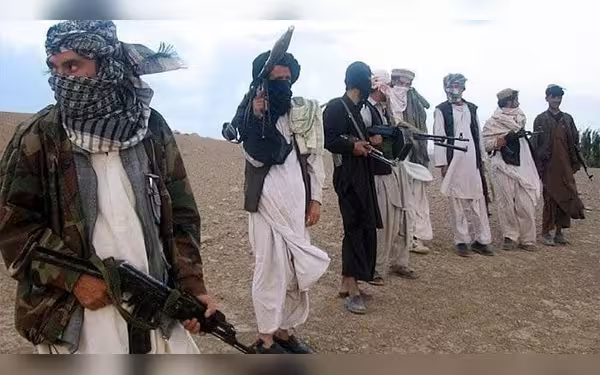Wednesday, January 15, 2025 09:33 AM
Pakistan Government Labels TTP as 'Fitna al-Khawarij' to Combat Terrorism
- Government mandates use of 'Khariji' for terrorists.
- New measures aim to address ideological roots of extremism.
- Operation 'Azm-e-Istehkam' launched to enhance security.
 Image Credits: geo
Image Credits: geoThe Pakistani government has classified TTP as 'Fitna al-Khawarij' to combat terrorism, emphasizing ideological roots and launching new security operations.
The government of Pakistan has recently made a significant decision to combat terrorism not just through military action, but also by addressing the ideological roots of these extremist groups. In a move that aims to clarify the true nature of the banned Tehreek-e-Taliban Pakistan (TTP), the government has officially labeled them as "Fitna al-Khawarij." This announcement was made on Wednesday, and it comes with a directive for all institutions to use the term "Khariji" when referring to individuals involved in terrorist activities against Pakistan.
This new classification is part of a broader strategy to tackle the rising number of terrorist attacks targeting the armed forces. The government believes that these militant groups have "distorted the image of Islam under the guise of religion," and it aims to expose their true ideology. As part of this initiative, titles such as "Mufti" and "Hafiz" will no longer be given to those associated with terrorist organizations. Instead, all official documents must include the term "Khariji" before their names.
The Ministry of Interior has described TTP militants as "corrupt elements" who do not genuinely adhere to the faith. They have instructed all government bodies to implement this new order immediately. Additionally, the interior ministry has banned two more terrorist groups: the Hafiz Gul Bahadur Group (HGBG) and the Majeed Brigade (MB). After a two-year monitoring period, these groups have been added to the list of proscribed organizations by the National Counter Terrorism Authority (NACTA).
In recent months, Pakistan has seen a troubling increase in terrorist activities, especially in the Khyber Pakhtunkhwa (KP) and Balochistan provinces. According to the Annual Security report from the Centre for Research and Security Studies (CRSS), there were 380 fatalities and 220 injuries linked to violence in the second quarter of 2024. This includes casualties among civilians, security forces, and militants.
During this time, there were around 240 incidents of terror attacks and counter-terror operations. The provinces of KP and Balochistan, which share borders with Afghanistan, have been particularly hard hit, accounting for nearly 92% of all fatalities and 87% of attacks. Specifically, 67% of the fatalities occurred in KP, while 25% were in Balochistan during the second quarter of 2024.
In response to the growing threat of terrorism, including cross-border infiltration, the federal government launched operation "Azm-e-Istehkam" last month. This operation marks a renewed national anti-terror initiative as part of the National Action Plan, aiming to strengthen the country’s security measures.
The recent actions taken by the Pakistani government reflect a serious commitment to addressing the issue of terrorism from multiple angles. By focusing on the ideological aspects and implementing strict measures against those involved in terrorist activities, the government hopes to create a safer environment for its citizens. It is crucial for the public to stay informed and support these initiatives to help combat the menace of terrorism effectively.












